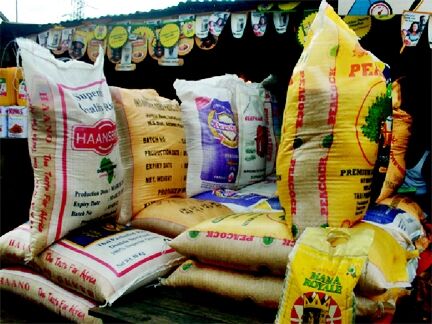The export ban on non-basmati rice imposed by India has led to an unprecedented spike in the price of the grain in the United States.
Terrified of a global shortage of rice, Indian-Americans have been seen in long lines in supermarkets across the nation, including in Texas, Michigan, New Jersey Alabama, Ohio, Illinois, and California, buying up as much of the staple crop as they can get their hands on.
The sudden rise in prices has, predictably, created a lucrative opportunity for stores, with one shop reportedly charging $46.99 for a 20-pound bag, while others are imposing minimum-spend requirements in order to capitalize on panicked buyers.
The ban has sparked fears of a worldwide shortage of rice, as India accounts for 40% of global exports. The grain is a staple for more than 3 billion people, and while parboiled rice is excluded from the ban, it still caused an 11.5% jump in retail prices.
The country's Prime Minister Narendra Modi appears sensitive to public sentiment around food inflation ahead of a general election due next year, and the ban follows similar restrictions placed on wheat and sugar exports this year due to poor yields.
But heavy rainfall in northern India over the last few weeks has further exacerbated the problem, with thousands of acres of paddy fields being flooded and up to a week delay before a replacement crop can even be replanted.
The price of Vietnamese and Thai grain, priced at over $500 a metric ton, has now shot up to its highest since 2011, leaving buyers such as China and the Philippines unable to get rice for the same price. African countries who are accustomed to buying from India are left in the lurch, and many countries will no doubt be appealing to New Delhi to resume shipments.
The past week has seen India's decision followed by Russia's suspension of the Black Sea Grain Initiative, which allowed grain to flow from Ukraine to countries in Africa, the Middle East, and Asia. Officials declared this was not due to the attack on the Crimean bridge on Monday, but rather was instigated in response to demands for Russian food and fertilizer to be shipped to these countries.
The combined disruption in food supply wrought by India and Ukraine has both domestic and international implications, with some US supermarkets already beginning to ration supplies, as ordinary citizens are forced to pay far more for a basic necessity.
It may still be early days, but the events of the past week serve to highlight the importance, and vulnerability, of international food supply chains and their capacity to be disrupted at any time. If this trend continues, it could spell trouble for any region dependent on foreign imports, as they quickly become saddled with the burden of rising prices of essential groceries.
So it begins. India has banned some rice exports and now people are panic buying up rice. pic.twitter.com/ujpm66ER3n
— Ian Miles Cheong (@stillgray) July 23, 2023

